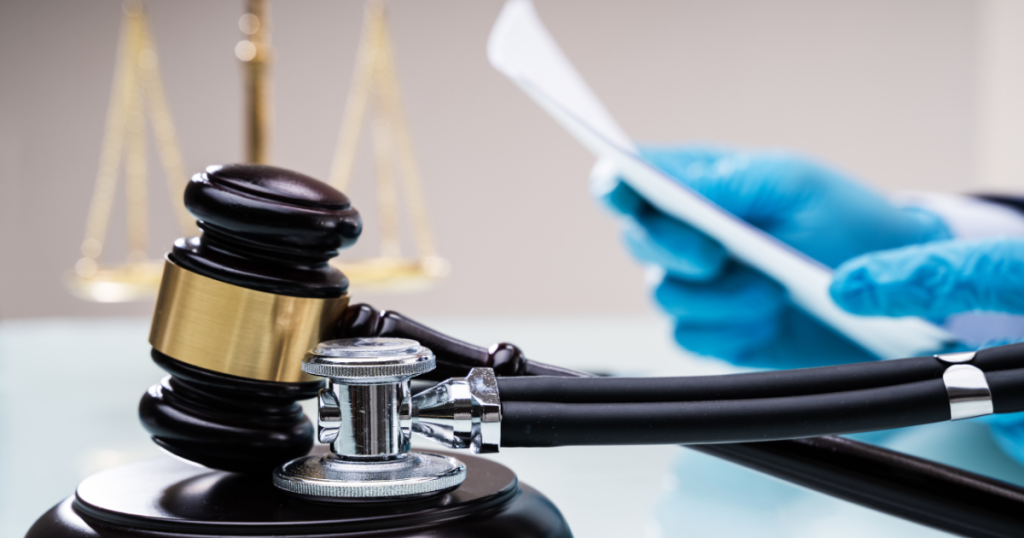Now Reading: Can I Claim for Emotional Distress After an Injury in Georgia
-
01
Can I Claim for Emotional Distress After an Injury in Georgia

Can I Claim for Emotional Distress After an Injury in Georgia
Experiencing severe injuries after an accident can be a traumatic event, not just physically but emotionally as well. Emotional distress, which can manifest as anxiety, depression, or even post-traumatic stress disorder (PTSD), is a serious condition that can significantly impact one’s quality of life.
A good understanding of personal injury laws in Georgia can help you determine if you can claim for emotional distress as part of your compensation.
What is Emotional Distress?
Emotional distress refers to the psychological impact that can follow a traumatic event such as a personal injury. It encompasses a range of symptoms including anxiety, severe stress, depression, and PTSD.
For instance, someone involved in a severe car accident might experience ongoing fear and anxiety about driving, while another individual might suffer from insomnia and depression after a workplace injury.
Legal Basis for Emotional Distress Claims in Georgia
In Georgia, personal injury laws allow victims to seek compensation for both economic and non-economic damages. Emotional distress falls under the category of non-economic damages.
The law recognizes that emotional trauma can be as debilitating as physical injuries and provides a legal avenue for victims to seek redress.
Requirements to Prove Emotional Distress
To successfully claim for emotional distress in Georgia, certain elements must be established:
- Physical Manifestation: Traditionally, emotional distress claims needed to be accompanied by physical symptoms. Although this requirement has evolved, it still holds weight in many cases.
- Professional Diagnosis: Documentation from mental health professionals diagnosing conditions like anxiety or PTSD strengthens the claim.
- Causal Connection: There must be a direct link between the injury and the emotional distress experienced.
Types of evidence supporting an emotional distress claim include medical records, testimonies from psychiatrists or psychologists, and personal journals documenting the emotional suffering.
Challenges in Claiming Emotional Distress
Proving emotional distress can be complex due to its subjective nature. Unlike a broken bone or a visible scar, emotional distress is not as easily quantifiable.
Common challenges include:
- Proving Severity and Impact: Demonstrating the severity of emotional distress and its impact on daily life can be difficult without substantial evidence.
- Insurance Company Tactics: Insurance companies may argue that the emotional distress was pre-existing or not as severe as claimed, attempting to minimize the payout.
- Statute of Limitations: As per Georgia Code § 9-3-33, personal injury claims for emotional distress must be filed within two years from the date of the accident. Missing this window can lead to the claim being dismissed.
Steps to Take If You Believe You Have a Claim
If you believe you have grounds for an emotional distress claim, taking immediate action is imperative:
- Seek Medical Attention: Obtain a professional diagnosis and start treatment for any emotional distress.
- Document Symptoms: Keep detailed records of your symptoms, including dates, duration, and intensity.
- Consult with an Attorney: Engage a personal injury attorney who specializes in emotional distress claims. They can guide you through the legal process and help gather necessary evidence.
If you have suffered emotional distress due to an injury caused by someone else’s negligence, it is essential to seek legal assistance from a reputable Augusta car accident attorney. A good lawyer can help you gather evidence, navigate any challenges that may arise, and negotiate with insurance companies on your behalf.
For example, in cases where the insurance company is disputing the severity of emotional distress, a lawyer can gather expert opinions from medical professionals to support your claim.
Final Thoughts
While physical injuries may be easier to see and quantify, emotional distress should not be overlooked as a legitimate consequence of personal injury. With appropriate legal assistance and sufficient evidence, victims in Georgia can seek compensation for emotional distress along with other damages resulting from their injuries.
Remember, seeking timely medical attention for both physical and emotional injuries is vital for your health and potential legal claims. Whether through therapy, medication, or other means, addressing emotional distress as part of your recovery process can lead to a better quality of life in the long run.










